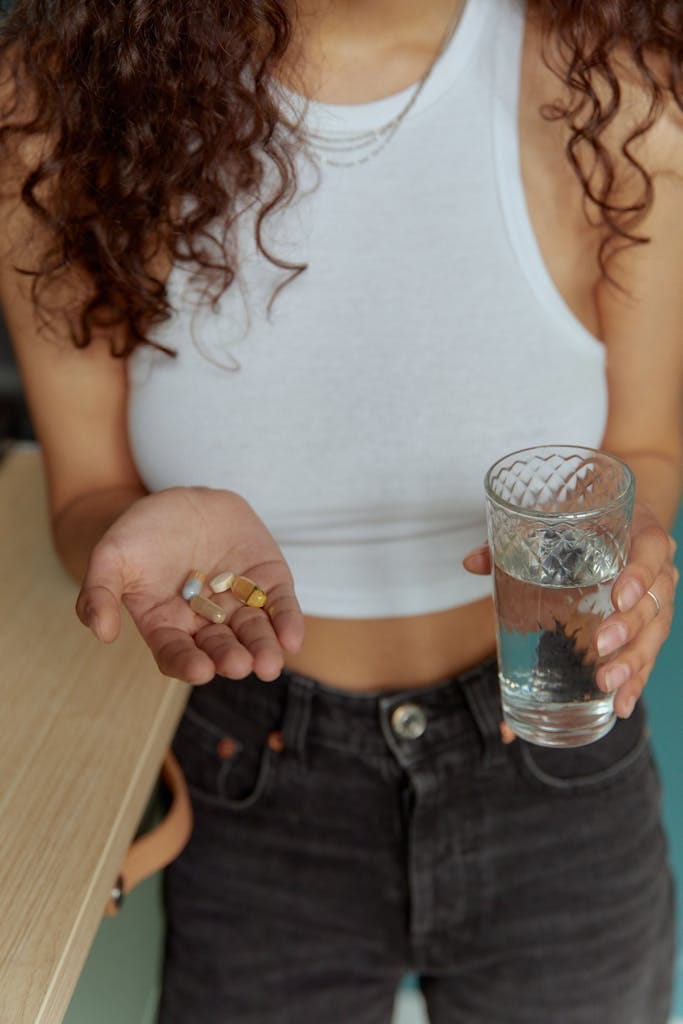FREE SHIPPING OVER $50
This Vitamin Could Be the Key to Living Longer—Here’s What Scientists Found
What if the secret to a longer, healthier life was as simple as taking a daily vitamin? While no supplement can replace a balanced diet and healthy lifestyle, emerging research suggests that one vitamin, in particular, might play a starring role in longevity. Scientists are buzzing about its potential to slow aging, boost immunity, and protect against chronic diseases.
In this article, we’ll dive into the science behind this vitamin, explore how it could help you live longer, and share practical tips for incorporating it into your routine. Let’s uncover the key to unlocking a healthier, more vibrant future.

The Vitamin in the Spotlight: Vitamin D
The vitamin that’s stealing the spotlight? Vitamin D. Often called the “sunshine vitamin,” it’s essential for bone health, immune function, and more. But recent studies suggest it might also be a game-changer for longevity. Here’s why:
- Supports Immune Health: Vitamin D strengthens your immune system, helping you fight off infections and diseases.
- Reduces Inflammation: Chronic inflammation is a major driver of aging and disease. Vitamin D helps regulate inflammatory responses.
- Protects Against Chronic Diseases: Low levels of vitamin D are linked to heart disease, diabetes, and certain cancers.
- Boosts Brain Health: Vitamin D supports cognitive function and may reduce the risk of neurodegenerative diseases like Alzheimer’s.
But how exactly does vitamin D contribute to a longer life? Let’s explore the science.
The Science Behind Vitamin D and Longevity
Research has uncovered several ways vitamin D may help you live longer:
- Telomere Protection: Telomeres are the protective caps at the ends of your chromosomes. Shorter telomeres are associated with aging and disease. A study in the American Journal of Epidemiology found that higher vitamin D levels are linked to longer telomeres.
- Reduced Mortality Risk: A meta-analysis in the BMJ showed that people with higher vitamin D levels have a lower risk of early death from all causes.
- Improved Heart Health: Vitamin D helps regulate blood pressure and reduce arterial stiffness, lowering the risk of heart disease, the leading cause of death worldwide.
- Cancer Prevention: Research suggests that adequate vitamin D levels may reduce the risk of certain cancers, including breast and colon cancer.
These findings make a strong case for ensuring you’re getting enough vitamin D. But how much do you need, and what’s the best way to get it?
How to Get Enough Vitamin D
Vitamin D is unique because your body can produce it when your skin is exposed to sunlight. However, many people don’t get enough due to factors like limited sun exposure, sunscreen use, or living in northern latitudes. Here’s how to boost your levels:
1. Sunlight
- How It Works: Your skin synthesizes vitamin D when exposed to UVB rays.
- How Much You Need: Aim for 10-30 minutes of midday sun exposure several times a week, depending on your skin tone and location.
- Pro Tip: Avoid overexposure to reduce the risk of skin damage.
2. Food Sources
- Fatty Fish: Salmon, mackerel, and sardines are excellent sources of vitamin D.
- Egg Yolks: Choose pasture-raised eggs for higher vitamin D content.
- Fortified Foods: Many dairy products, plant-based milks, and cereals are fortified with vitamin D.
3. Supplements
- Why They’re Helpful: Supplements can fill the gap if you’re not getting enough vitamin D from sunlight or food.
- How Much to Take: The recommended daily allowance (RDA) is 600-800 IU for most adults, but some experts suggest higher doses (1,000-4,000 IU) for optimal health.
- Pro Tip: Choose vitamin D3 (cholecalciferol), which is more effective at raising blood levels than D2.
Who’s at Risk of Vitamin D Deficiency?
Certain groups are more likely to have low vitamin D levels:
- Older Adults: Aging reduces the skin’s ability to produce vitamin D.
- People with Darker Skin: Higher melanin levels reduce vitamin D synthesis.
- Those Living in Northern Latitudes: Limited sunlight during winter months can lead to deficiency.
- Individuals with Limited Sun Exposure: Office workers, night-shift workers, or those who cover their skin for cultural or medical reasons.
If you fall into one of these categories, consider getting your vitamin D levels tested and discussing supplementation with your healthcare provider.
The Risks of Vitamin D Deficiency
Low vitamin D levels can have serious consequences:
- Weakened Bones: Vitamin D is essential for calcium absorption, and deficiency can lead to osteoporosis or fractures.
- Increased Infection Risk: A weak immune system makes you more susceptible to illnesses.
- Chronic Diseases: Deficiency is linked to heart disease, diabetes, and certain cancers.
- Mood Disorders: Low vitamin D levels are associated with depression and seasonal affective disorder (SAD).
By maintaining adequate vitamin D levels, you can reduce these risks and support overall health.
Tips for Optimizing Your Vitamin D Levels
Here’s how to make the most of this longevity-boosting vitamin:
- Get Tested: Ask your doctor for a blood test to check your vitamin D levels. Optimal levels are typically between 30-50 ng/mL.
- Balance Sun Exposure: Enjoy safe sun exposure while protecting your skin from damage.
- Eat a Balanced Diet: Include vitamin D-rich foods in your meals.
- Supplement Wisely: If needed, take a high-quality vitamin D3 supplement.
- Combine with Other Nutrients: Vitamin D works best with magnesium and vitamin K2, which help with absorption and utilization.
Conclusion
Vitamin D isn’t just a vitamin—it’s a powerful ally in your quest for a longer, healthier life. From protecting your heart to boosting your brain, the benefits of this sunshine vitamin are too significant to ignore. Whether you get it from the sun, your diet, or a supplement, making sure you have enough vitamin D is one of the simplest steps you can take to support your health and longevity.
Related Articles
- Heart-Boosting Supplements a Cardiac Surgeon Swears By: CoQ10, Omega-3, and More
- Harvard Scientists Discover a Chemical Cocktail That Reverses Human Aging in Lab Studies
- Brain Supplements Uncovered: What Works, What’s Hype, and What You Need to Know
- The Shocking Truth About Supplements and Health Over 60
- Reverse Aging: 15 Proven Ways to Turn Back the Clock by 12 Years for Those Over 50!







